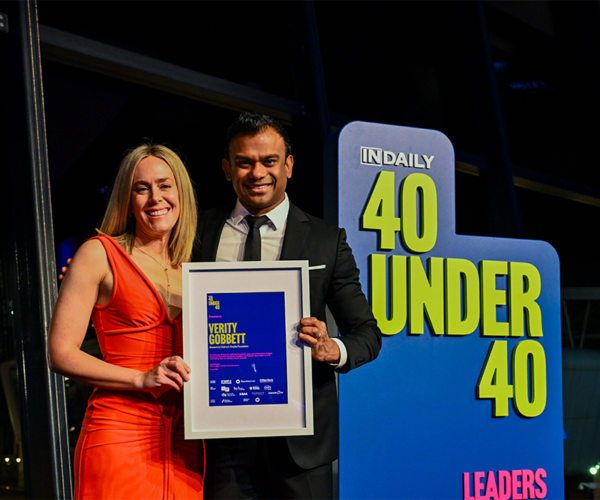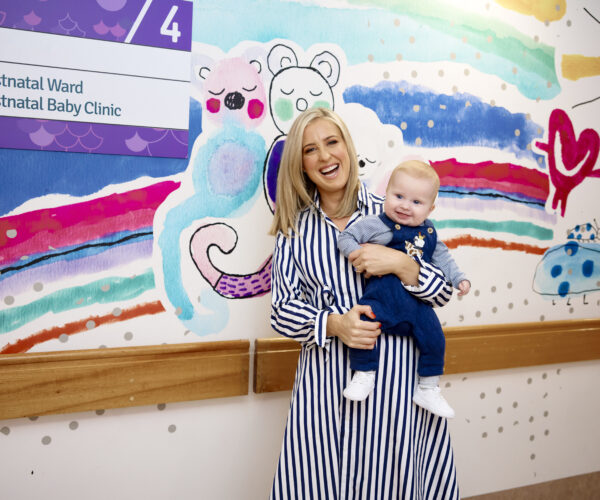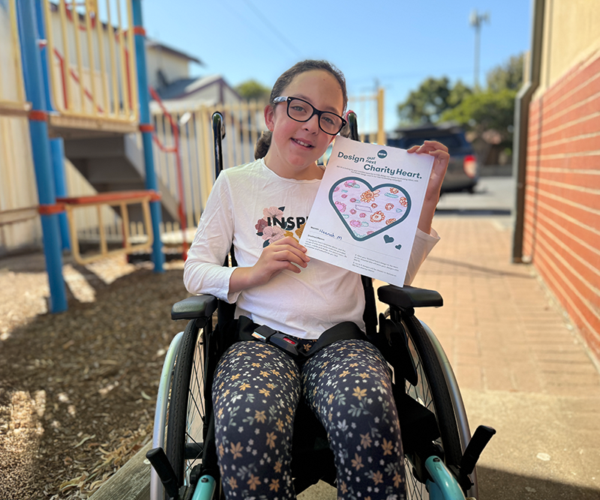A program developed in the United States that teaches children with chronic pain and their families techniques to better manage pain has recently launched at the Women’s and Children’s Hospital with the support of the Foundation.
In late-winter, Assistant Professor Rachael Coakley – the creator of ‘Comfort Ability’, travelled to Adelaide to deliver training to 12 SA Health employees and community clinicians to enable them to implement the one-day program.

Dr Nicki Ferencz, Clinical Coordinator at the WCH Chronic Pain Service and Assistant Professor Rachael Coakley – the creator of ‘Comfort Ability’ (pictured middle) with SA Health employees.
Assistant Professor Coakley is the Director of Clinical Innovation and Outreach in Pain Medicine in the Department of Anesthesia, Critical Care and Pain Medicine at Boston Children’s Hospital. She is also an Assistant Professor at Harvard Medical School.
Six children treated by the Hospital’s Chronic Pain Service and their parents were then the first Australian families to participate in the evidence-based program, which is currently rolled out in 16 hospitals throughout the US.
The Foundation funded the items used in the program’s launch, as well as 70 take-home comfort kits for children who will participate in the program over the next 12 months.
Comfort kits include items that can be used for helping with sleep, relaxation and better managing pain such as a reading light, eye masks, earphones, writing materials and hot and cold packs.
The aim of Comfort Ability
Dr Nicki Ferencz, Clinical Coordinator at the WCH Chronic Pain Service, said the aim of Comfort Ability is to empower children and their families to better manage pain and discomfort.
“The program provides pain education and utilises cognitive-behavioural techniques that teach children how thinking impacts emotions and behaviour and how the relationship between your mind and your body impacts pain,” she said.
“The program does not replace their current medical or psychological treatments, and the strategies learnt are designed to work with their pain management plan. If children and families don’t have a current plan, this program will start the conversation about how they can begin to get the right systems in place.”
What the one-day program involves
The program teaches children practical strategies that can help better manage pain such as breathing techniques, guided imagery and mindful activities. These strategies in conjunction with the items in the comfort kits can be used quickly and easily when they are at home or at school, so they can stay more engaged in the activities they enjoy.
The Foundation also provided aromatherapy oils and pocket diffusers used in the program.

Items in the comfort kit.
“Aromatherapy oils were used in the group to show children that engaging in pleasurable activities can assist them to feel more comfortable and further demonstrated the link between the mind and the body,” Dr Ferencz said.
“Children can easily use the pocket diffusers at school if pain flares as a strategy that can accompany a temporary break from the classroom whilst they practice breathing and mindfulness techniques and before returning to their work.
“Parents were taught skills for reflective listening, for example when their child might say, ‘I can’t do this’ we demonstrated and explored how they might respond so they can feel more empowered and able to assist their child to manage to complete tasks more successfully.
“Parents also learnt and participated in relaxation exercises, to help reduce their own stress so they can better cope with their children’s chronic medical issues.”
The future for Comfort Ability
Dr Ferencz said the Chronic Pain Service is a small service and is incredibly grateful to the Foundation for helping in running the program.
The feedback from families was overwhelmingly positive and the service is planning to run the Comfort Ability program again at the end of November, and in March and May 2020.




